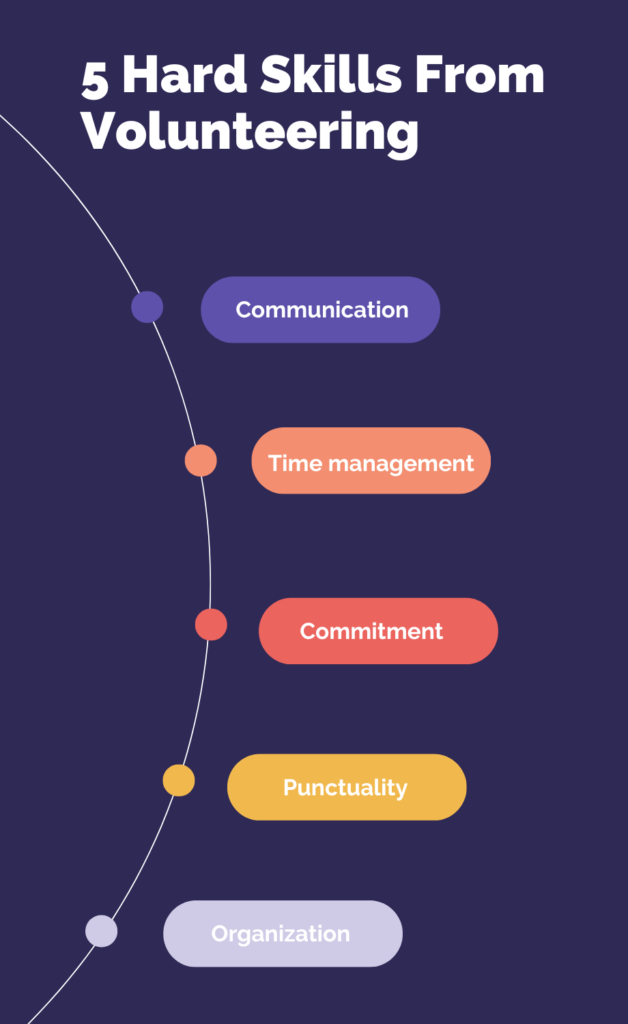The backbone of any company is its employees. However, it is the highly productive employees that help a company achieve its goals.
It isn’t just the task management, communication, and collaboration tools that make your employees work efficiently. Productivity is also influenced by experiences outside the workplace, particularly those that promote a healthy work-life balance.
Enter a workplace volunteer program. A program where employees can find volunteer opportunities that meet their individual preferences and participate in company-wide volunteer events hosted by their employer.
Regardless of how these employees choose to volunteer their time, employees will come out of these experiences with a healthier mindset, improved social connections, and additional hard skills, ultimately helping them to excel in their work and have a greater impact on the success of their company.
In this blog, we will examine the relationship between volunteering and productivity, illustrating how a workplace volunteer program can significantly enhance the performance of your employees.
Improved mental health
When employees feel their best, they are able to perform at their best. Volunteering is proven to reduce stress and boost happiness, helping employees maintain a clear mindset needed to focus and remain productive at work.
Reduction in stress: When wanting to detach from the source of our stress, one may think of yoga, meditation, or self-help podcasts. However, lending a helping hand through volunteering releases dopamine—a neurotransmitter that allows individuals to feel pleasure and satisfaction. This release of dopamine has a stress-reducing effect due to the influx of rewarding and pleasant feelings.
Boost of happiness: Not only is volunteering linked to lower stress levels, but volunteering boosts one’s self-confidence and self-satisfaction, leading to feelings of happiness. For instance, an employee who spends a day volunteering at an animal shelter is making a big impact in their community. They are helping out the staff at the animal shelter by taking certain responsibilities off their plate while providing an exceptional level of care for the animals: a good deed that makes employees feel satisfied and confident.
Development of hard skills
Communication, time management, commitment, punctuality, and organization. These skills can be learned (or sharpened) during a volunteer day, all of which are equally important in order for an employee to be productive in the workplace.
Let’s look at time management—a skill that many employees want to master. Although volunteering is as it sounds, a voluntary activity, many roles and responsibilities come with each opportunity. If an employee were to volunteer at a soup kitchen, their responsibilities would include prepping and sanitizing the trays, restocking the food, distributing meals, and cleaning up. These varied responsibilities teach an individual the importance of prioritizing tasks, as well as working efficiently within a given time frame.
That same volunteer activity at a soup kitchen can also sharpen an employee’s communication skills. As that individual will likely be working with other volunteers and serving guests their meals, they will need to be able to actively listen to requests, speak clearly and concisely, and empathize with the feelings of others.

Increase in social connections
With volunteering, employees can connect with colleagues beyond the confines of team meetings and group brainstorming sessions.
For example, a remote company with 60 employees decides to organize and manage a volunteer day. This provides a chance for a group of employees across different departments to get out and support a cause together in their community, with all logistics organized by their employer.
If it weren’t for this volunteer day, what other initiatives would allow for this level of cross-departmental bonding? This volunteer day eliminates any barriers that a remote work setting presents. Volunteering creates a setting for employees to strategize, problem solve, and learn from each other.
These organic social interactions increase trust and rapport among employees, leading to increased knowledge sharing and problem solving in the workplace.
Improved morale
A company that actively organizes team volunteer days or helps to connect employees with individual volunteer opportunities demonstrates that well-being is one of its top priorities. When employees feel valued by their organization, their outlook and attitude toward their job and employer shift upwards, making them more diligent in their jobs.
For instance, Company ABC takes the initiative to host a company-wide volunteer day for Earth Day. They select a time & day, location, and volunteer activity, sending this information to each of their employees to participate. Employees who partake in this volunteer day feel respected and appreciated by their employer—being given a paid day off to participate in a meaningful activity. As employees feel that their passions and interests are met by their company, they become more dedicated to their jobs and the organization overall.
A work environment that enhances employee productivity can be created through a workplace volunteer program. With a positive shift in mental health, the development of social connections and hard skills, and improved morale, employees will remain motivated and focused to perform at their best.
Therefore, in response to the question “Can a workplace volunteer program improve productivity?” the answer is most certainly, yes.
Interested in starting a workplace volunteer program? With Kambeo’s robust social impact platform, enable your employees to explore charitable giving opportunities with local and global nonprofits and create your own company-wide volunteer events.



